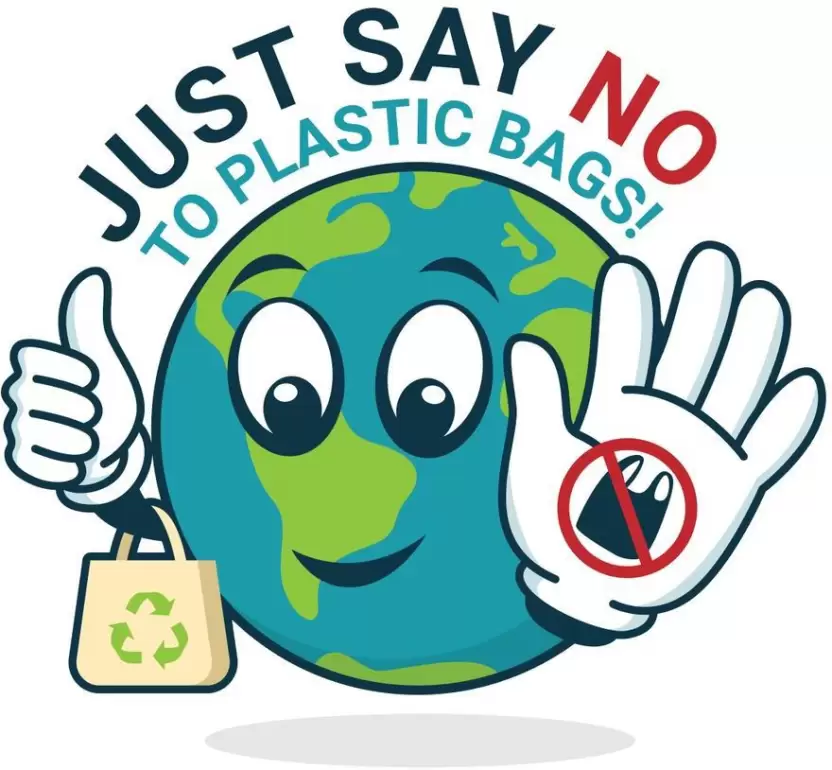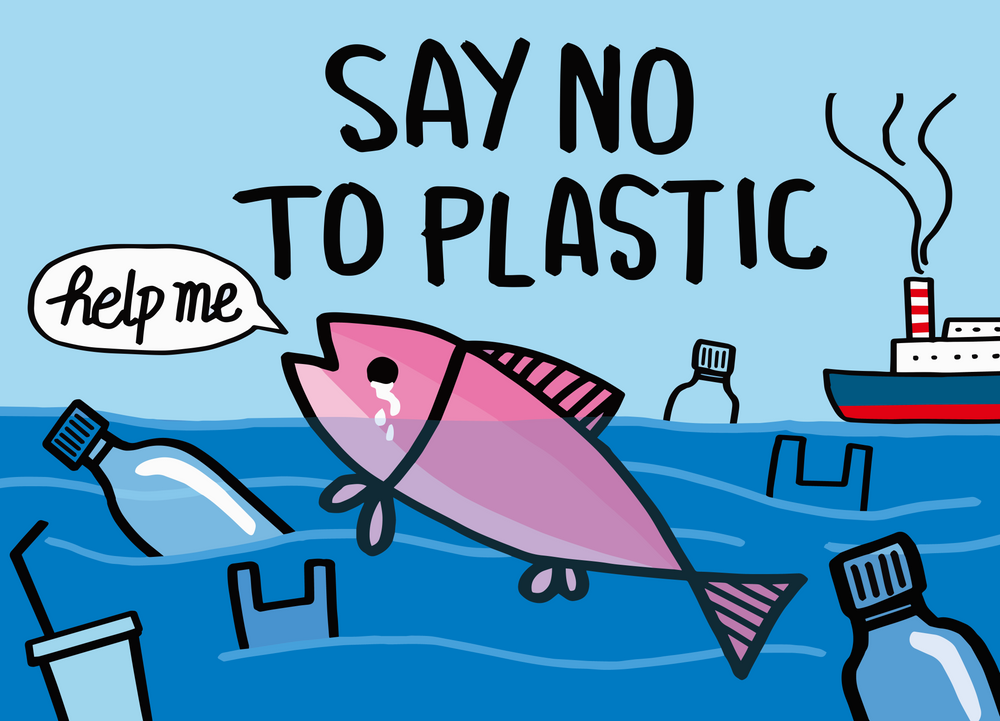- Get link
- X
- Other Apps
Stop Using Plastic
Plastic is one of the most widely used materials in the world, but it also poses a serious threat to our health and nature. In this blog post, we will explore how plastic affects us and the environment, and what we can do to avoid it or reduce its impact.
Plastic is made from petroleum, a non-renewable resource that contributes to greenhouse gas emissions and climate change. Plastic also contains various chemicals that can leach into food, water, and air, causing health problems such as cancer, hormonal disruption, and infertility. Some of these chemicals are endocrine disruptors, which interfere with the normal functioning of our hormones and can affect our development, reproduction, and metabolism.
Plastic also harms nature in many ways. Plastic waste accumulates in landfills, oceans, and rivers, where it takes hundreds of years to degrade. Plastic pollution affects wildlife, especially marine animals, who mistake plastic for food or get entangled in it. Plastic ingestion can cause injuries, infections, starvation, and death for animals. Plastic also fragments into microplastics, which are tiny pieces of plastic that can be ingested by organisms at all levels of the food chain, from plankton to humans. Microplastics can carry toxins and pathogens, and can also accumulate in the tissues of animals and humans, causing unknown long-term effects.
So how can we avoid or reduce plastic in our lives? Here are some alternatives and tips:
- Use reusable bags, bottles, cups, straws, and containers instead of single-use plastic ones. Bring your own bag when you go shopping, your own bottle when you drink water, your own cup when you buy coffee, your own straw when you sip a smoothie, and your own container when you order takeout.
- Choose products that are packaged in paper, cardboard, glass, metal, or biodegradable materials instead of plastic. Look for labels that say "plastic-free", "recyclable", or "compostable". Avoid products that have excessive or unnecessary plastic packaging.
- Recycle or dispose of plastic properly. Follow the local recycling guidelines and separate plastic from other waste. Do not litter or dump plastic in nature. Join or organize clean-up activities to collect and remove plastic from the environment.
- Educate yourself and others about the dangers of plastic and the benefits of alternatives. Share information and resources with your friends, family, and community. Support organizations and initiatives that promote plastic reduction or elimination.
- Plastic expiry date is a term that refers to the time when plastic starts to degrade or lose its quality. Different types of plastic have different expiry dates, depending on their composition and exposure to heat, light, oxygen, and moisture. For example, plastic water bottles have an expiry date of about two years, while plastic bags have an expiry date of about 10 to 20 years. However, plastic expiry date does not mean that plastic is safe or harmless before it expires. Plastic can still leach chemicals or break into microplastics before its expiry date. Therefore, it is better to avoid plastic as much as possible or replace it with safer alternatives.
Plastic is made from petroleum, a non-renewable resource that contributes to greenhouse gas emissions and climate change. Plastic production also consumes a lot of energy and water, and generates toxic waste and pollution. Plastic is not biodegradable, which means it does not break down naturally in the environment. Instead, it accumulates in landfills, oceans, rivers, and soil, where it can harm wildlife and ecosystems. Plastic can also leach chemicals into the water and soil, contaminating our food and drinking sources.
Plastic can affect our health in various ways. Some plastics contain additives such as bisphenol A (BPA) or phthalates, which can disrupt our hormonal balance and cause reproductive problems, diabetes, obesity, cancer, and neurological disorders. Plastic can also release microplastics, tiny particles that can enter our body through ingestion or inhalation. Microplastics can damage our organs, tissues, and cells, and carry toxins and pathogens that can cause infections and diseases.
To avoid or reduce the harmful effects of plastic, we can take some actions in our daily lives. Here are some tips:
- Use reusable bags, bottles, cups, straws, containers, and utensils instead of disposable ones.
- Avoid buying products that are packaged in plastic or have plastic components.
- Recycle or reuse plastic items that you already have. To recycle plastic, you need to sort it by type and color, clean it from any dirt or residue, and take it to a recycling center or bin. You can also look for products that have a recycling symbol or label on them.
- Choose products that are made from natural or recycled materials, such as paper, glass, metal, wood, or bamboo.
- Support businesses and organizations that promote plastic-free or zero-waste practices.
- Educate yourself and others about the dangers of plastic and the benefits of alternatives.
Plastic has an expiry date, which means it loses its quality and functionality over time. This can make plastic products unsafe or ineffective for their intended use. For example, plastic bottles can degrade and release chemicals into the liquids they contain. Plastic toys can break or crack and pose choking hazards for children. Plastic medical devices can become contaminated or malfunction. Therefore, it is important to check the expiry date of plastic products before using them, and dispose of them properly when they expire.
Plastic is a problem that affects us all, but we can also be part of the solution. By avoiding or reducing our plastic consumption, we can protect our health and nature, and contribute to a more sustainable future.
- Get link
- X
- Other Apps


Comments
Post a Comment